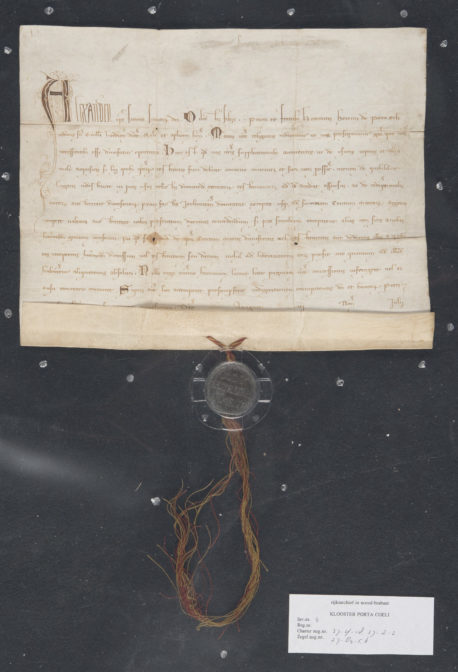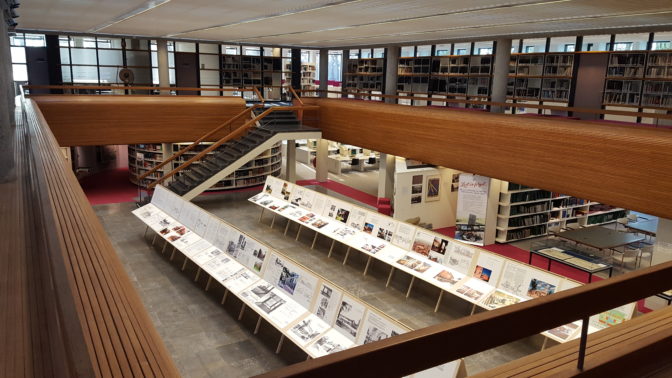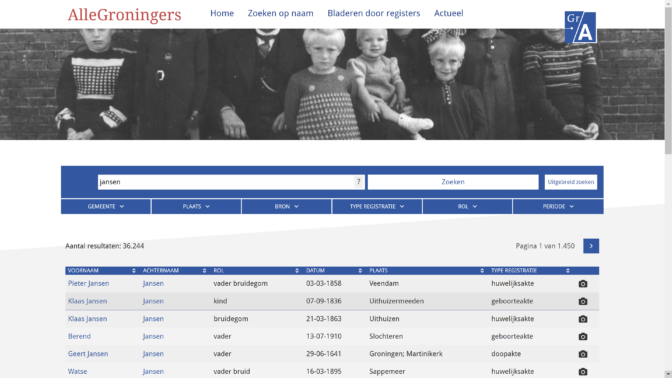Here is an overview of the new sources, projects, and news about archives that were announced last month.
Sources
- Notarial records of Tilburg from 1926-1935 (except wills) and all the public notarial records of Oosterhout from 1612 to 1935 are now available at the Regional Archives Tilburg website.
- Church records of various municipalities in Limburg and the neighboring German area were published on GenBronnen.
- The municipality of Deventer has published 4,000 photos of the department of public information.
- The records of the Wilhelmieten monastery of Bazeldonk and Huijbergen in Noord-Brabant have been digitized and published online at the websites of the Brabant Historisch Informatie Centrum and the West-Brabants Archief, respectively.

Papal bul with permission for the convent, 1260 (public domain)
Websites
- The National Archives launched a new version of their website, which provides information about events and record keeping. For now, consulting the collection is done via the separate GahetNA website, which will be integrated into the main Nationaal Archief website later this year.
- A new website was launched with information over 20,000 Belgian refugees to the Netherlands during World War I.
- Militieregisters.nl, the website where several archives published their enlistment records, has become available again after months of downtime. The renewed website now requires a (free) registration. The scans of the registers, which formerly had to be paid for, are now available for free. Many of these records are also available via WieWasWie or the websites of the participating archives.
- The Groninger Archieven and their genealogical website Alle Groningers have had a facelift. The new version of AlleGroningers makes it easier to search for name variations and both websites work better on mobile devices. The database of Groninger license plates has been moved to a separate website, Groninger Kentekens.
Archives
- The province of Flevoland has a separate archive as of 1 January 2018: Het Flevolands Archief. The archives were formerly a part of a larger organization that also included a museum. The new archive will focus on digitizing all the archival records in the province.
- The Noord-Hollands Archief announced a change to their free scanning-on-demand service. Because of increased demand and a fixed budget, the requests will be limited to two requests per person per week. The turn-over will probably increase to 4-5 weeks. You can order the records via the finding aids on the Noord-Hollands Archief website.
- Leeuwarden in Friesland is the Cultural Capital of Europe this year. To facilitate the increased visitors, the provincial archives in Friesland, Tresoar, will be open seven days per week from 10 AM to 10 PM (Saturday: until 9 PM; Sunday, until 6 PM).

Reading room at Tresoar. Credits: Romaine, via Wikimedia Commons (CC-0)
Projects
- Records from the Manorial Records of Borculo have been restored by the Erfgoedcentrum Achterhoek en Liemers.
- The Noord-Hollands Archief announced a collaboration with Transkribus to use artificial intelligence to transcribe handwritten documents. They are looking for volunteers to help provide test sets. (See announcement Noord-Hollands Archief).
- The Regional Archives of Tilburg announced that their crowdsourcing project to index the notarial records is going well. The records of Hilvarenbeek, Moergestel, Baarle-Nassau, Oisterwijk and Dongen have been entered and are being made available online via the RAT website.


